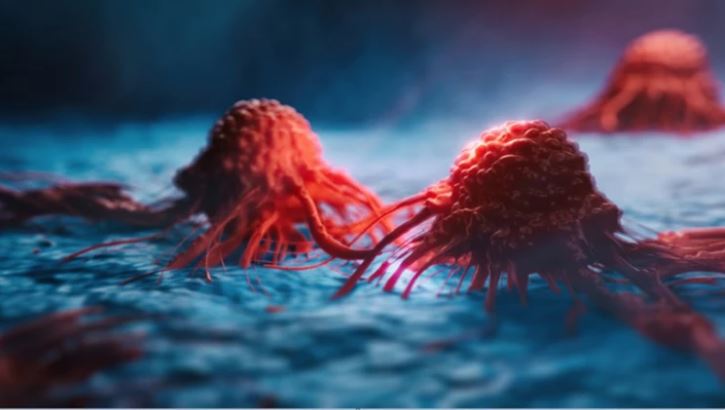


 12:22:36
12:22:36  2023-07-06
2023-07-06  850
850

For the first time in the world, the researchers were able to encode the toxin produced by the bacteria in messenger RNA (mRNA) molecules and deliver these particles directly to cancer cells, prompting the cells to produce the toxin, eventually killing them with a 50% success rate.
And unlike chemotherapy, these toxins did not harm nearby cells.
The study was led by student Jasmin Granot Matoc and Professor Dan Beer, a pioneer in the development of RNA therapeutics and head of the Nanomedicine Laboratory at the Shmoni School of Biomedicine and Cancer Research and vice chair of research and development at the University of Arizona.
Professor Beer explains: “Many bacteria secrete toxins. The best known is probably the botulinum toxin that is injected into Botox treatments. Another traditional treatment modality is chemotherapy, which involves delivering small molecules through the bloodstream to effectively kill cancer cells. However, treatment The chemo has a huge downside: it's not selective, and it kills healthy cells. Our idea was to deliver safe mRNA molecules encoding the bacterial toxin directly into cancer cells - stimulating these cells to produce the toxic protein that would then kill them. It's like putting a Trojan horse inside a cancer cell. ".
The research team first encoded the genetic information of a toxic protein produced by Pseudomonas bacteria into mRNA molecules (similar to the procedure in which the genetic information of the COVID-19 spike protein was encoded into mRNA molecules for vaccine production).
The mRNA molecules were then packaged into lipid nanoparticles developed in Professor Pierre's lab and coated with antibodies - to ensure that the instructions for toxin production would reach their target, cancer cells.
The molecules were injected into the tumors of animal models with melanoma skin cancer. After a single injection, 44-60% of the cancer cells were gone.
Professor Beer explains: 'In our study, the cancer cell produced the toxic protein that eventually killed it. We used Pseudomonas and Melanoma bacteria, but this was just a matter of convenience. Many anaerobic bacteria, especially those that live in the ground, secrete toxins, and most of these can be used. "Toxins with our method. This is our 'recipe', and we know how to deliver it directly to the target cells with our nanoparticles."
He continued: “When the cancer cell reads the ‘prescription’ at the other end, it starts producing the toxin as if it were the bacterium itself and this self-produced toxin eventually kills it. Thus, through a simple injection into the tumor bed, we can cause cancer cells to ‘suicide’ without "Harming healthy cells. Moreover, cancer cells cannot develop resistance to our technology as often happens with chemotherapy, because we can always use different natural toxins."
Reality Of Islam |
|

Labor short

A new ultra

Batteries p
 9:3:43
9:3:43
 2018-11-05
2018-11-05
10 benefits of Marriage in Islam
 7:5:22
7:5:22
 2019-04-08
2019-04-08
benefits of reciting surat yunus, hud &
 9:45:7
9:45:7
 2018-12-24
2018-12-24
advantages & disadvantages of divorce
 11:35:12
11:35:12
 2018-06-10
2018-06-10
 6:0:51
6:0:51
 2018-10-16
2018-10-16
 9:39:36
9:39:36
 2022-12-28
2022-12-28
 2:5:14
2:5:14
 2023-01-28
2023-01-28
 8:4:21
8:4:21
 2022-01-08
2022-01-08
 9:42:16
9:42:16
 2022-10-19
2022-10-19
 1:38:41
1:38:41
 2021-12-08
2021-12-08
 3:18:29
3:18:29
 2022-12-24
2022-12-24
 7:45:39
7:45:39
 2018-06-21
2018-06-21
 5:41:46
5:41:46
 2023-03-18
2023-03-18
| LATEST |